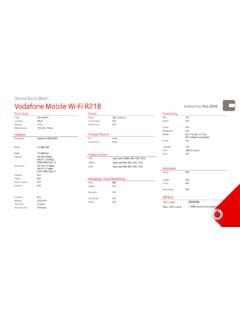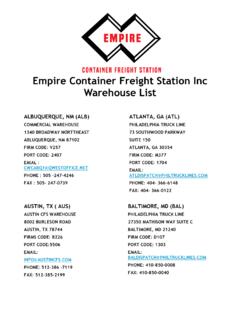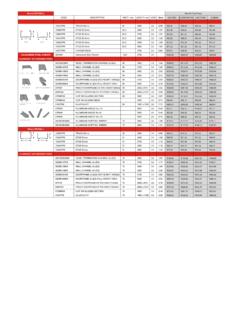Transcription of IN THE HIGH COURT OF SOUTH AFRICA - SAFLII …
1 IN THE high COURT OF SOUTH AFRICA . EASTERN CAPE, MTHATHA. CASE NO. CA&R 53/2013. REPORTABLE. In the matter between: SIPHO ALPHA KONDLO Appellant and EASTERN CAPE DEVELOPMENT. CORPORATION Respondent JUDGMENT. ALKEMA J. [1] This is an appeal against a judgment of the Butterworth Magistrates'. COURT granting summary judgment in favour of the Plaintiff/Respondent. The appeal raises important issues of interpretation of the Rules of the Magistrates' COURT , particularly Rule 14 thereof which deal with summary judgment applications.
2 The Defendant in the COURT a quo is the Appellant in the appeal, but for the sake of continuity and clarity I will continue to refer to him as the Defendant. Similarly, I will refer to the Respondent in the appeal as the Plaintiff. 2. [2] Mr Nkubungu, who appeared on behalf of the Defendant, handed in from the bar a formal application for condonation for the late prosecution of the appeal. The condonation application is opposed, but in view of the decision we have arrived at, the parties agreed that it is unnecessary to consider, at this stage, the condonation application.
3 [3] The facts giving rise to the appeal are the following: [4] During March 2012 the Plaintiff instituted action against the Defendant for, inter alia, his eviction from certain business premises in Butterworth, payment of R218 682, 72 in respect of arrears rentals, damages and costs of suit. The Defendant gave notice of his intention to defend, and on 11 April 2012, within the 15 day period allowed for in Rule 14 (2) of the Rules of the Magistrates' COURT , the Plaintiff gave notice of application to apply for summary judgment.
4 Attached to this application is an affidavit purportedly in compliance with Rule 14 (2) of the said Rules. I will later return to this affidavit. [5] It appears from the papers in the COURT file that on the same date, namely, 11 April 2012, the Plaintiff also filed a second document entitled Affidavit in support of an application for default judgment which is, as the name indicates, an affidavit. This affidavit follows essentially the same wording as the first affidavit in support of the summary judgment application, save that it adds that the lease agreement in respect of the premises has been misplaced or lost and notwithstanding a diligent search it cannot be found.
5 3. [6] Notwithstanding the above assertion, the written lease agreement was filed in the COURT file although it is unclear how or when or under what circumstances it was filed and/or served. It is, however, common cause in this appeal that the written lease agreement was not attached to the Plaintiff's particulars of claim in compliance with Rule 6(6) of the said Rules. The filing of the written agreement is therefore an irregularity, and this COURT cannot have any regard to it. [7] In response to the Plaintiff's application for summary judgment the Defendant filed an opposing affidavit in terms of the Rule 14(3)(b) of the said Rules.
6 The only defence raised in the affidavit is that the Plaintiff failed to comply with the said Rule (6)(6) in that it failed to attach the written lease agreement to the particulars of claim, thereby rendering the combined summons fatally defective.. [8] The application for summary judgment was subsequently argued, pursuant to which the learned Magistrate dismissed the defence of non- compliance with Rule 6(6) and granted summary judgment. as prayed'. [9] The Notice of Application for summary judgment filed on 11 April 2012.
7 Contains the following prayer: (a) An order cancelling the lease agreement;. (b) Payment of the sum of R218 ;. (c) Damages for the period which the defendant occupied the property after the cancellation of the lease agreement calculated at the rate of R2 per month;. (d) Costs of suits; . 4. (e) Further and//or alternative relief.. [10] Summary judgment may in terms of Rule 14(1) only be granted in respect of the following claims: (a) on a liquid document;. (b) for a liquidated amount in money;. (c) for delivery of specified movable property; or (d) for ejectment.
8 [11] It will be noted that there is no prayer for the eviction of the Defendant from the premises, and we were told during argument on appeal that it is now common cause that the Defendant had vacated the premises and eviction was no longer an issue. [12] Secondly, it is now trite that the service of a summons claiming cancellation of an agreement constitutes proper notice to a defendant of the cancellation of that agreement, provided that the necessary allegations are made in the summons or particulars of claim that the Plaintiff is entitled, in law, to the cancellation of such agreement.
9 In casu the necessary allegations are made and for purposes of this judgment I accept that the lease agreement was duly cancelled by the Plaintiff and that notice of such cancellation was duly given to the Defendant. The claim for cancellation under prayer (a). above is therefore not only unnecessary, but is in any event not covered by Rule 14(1) which specifies the only claims in respect of which summary judgment may be granted. 5. [13] Claim (c) in the prayer is for damages which are yet to be quantified and proved.
10 It is not permissible under Rule 14(1) to grant summary judgment for damages, and it follows that the appeal must succeed in respect of at least claim (c). [14] This leaves only claim (b) which is a liquidated amount in money (arrear rentals) in respect of which summary judgment may be granted under Rule 14(1)(b). As indicated, the defence is based on the Plaintiff's non- compliance with Rule (6)(6) Rules. Rule 6(6) reads as follows: (6) A party who in such party's pleading relies upon a contract shall state whether the contract is in writing or oral, when, where and by whom it was concluded, and if the contract is in writing a copy thereof or of the part relied on in the pleading shall be annexed to the pleading.
















